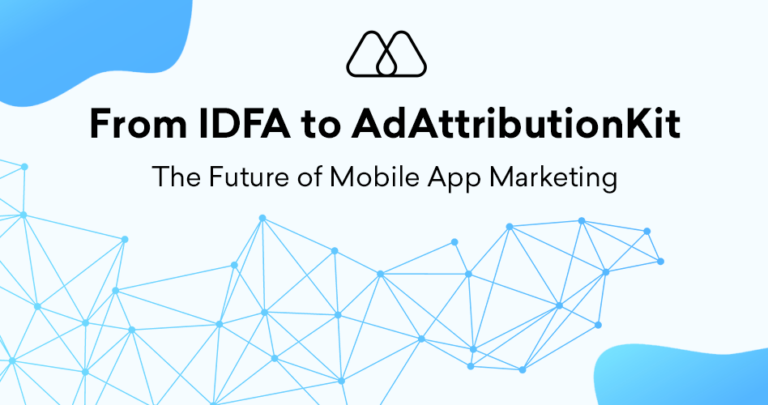In the fast-paced world of performance marketing, achieving consistent success requires constant evaluation and adaptation. Data analysis is the lifeblood of this process, providing insights into campaign performance, uncovering areas for improvement, and ultimately maximizing return on investment (ROI). Benchmarking is a powerful analytical technique and a crucial tool for performance marketers seeking an edge.
What is Benchmarking in Performance Marketing?
Benchmarking is comparing your performance marketing campaigns and strategies against established benchmarks. These benchmarks can become industry standards, competitor performance, or internal historical data. By gathering data on key performance indicators (KPIs) and analyzing them to your chosen benchmark, you gain valuable insights into the strengths and weaknesses of your approach. This comparative analysis equips you to refine targeting, optimize campaign elements, and ultimately achieve superior results.
Why Benchmarking in Performance Marketing?
The benefits of benchmarking in performance marketing are numerous and span the entire campaign lifecycle:
- Goal Setting with Confidence: Industry benchmarks provide a valuable baseline for setting realistic and achievable performance goals. Understanding average performance within your market helps you establish ambitious and attainable targets.
- Finding Improvement Opportunities: Benchmarking acts as a spotlight, illuminating areas where your campaigns might be underperforming compared to the benchmark. This can reveal weaknesses in areas such as; targeting, ad creative, landing page conversion rates, or other aspects of your strategy.
- Data-Driven Optimization: Once you identify areas for improvement, benchmarking data can be used to optimize various campaign elements. For instance, you might adjust your audience targeting based on competitor insights or refine your ad creatives based on industry best practices.
- Staying Ahead of the Curve: Benchmarking enables you to stay informed about current trends and performance levels within your industry. Monitoring competitor strategies and industry benchmarks allows you to adapt your campaigns to remain competitive and leverage the latest best practices.
- Justifying Budget Allocations: Benchmarking data provides valuable evidence to support budget allocation decisions. Demonstrating how your campaigns stack up against benchmarks can strengthen your case for increased investment in high-performing channels or strategies.
Types of Benchmarking in Performance Marketing
There are two primary types of benchmarks used in performance marketing:
- Competitive Benchmarks: This approach involves comparing your performance metrics to your direct competitors. Ideally, you would target competitors with similar target audiences, business models, and campaign goals. Competitive benchmarking data can be gleaned from industry reports, competitor analysis tools, or even educated estimations based on market research. While it offers valuable insights, obtaining specific competitor data can be challenging.
- Industry Benchmarks: This approach involves comparing your performance to industry averages or best practices. Industry benchmarks are available from various sources such as industry reports, performance marketing publications, and data providers specializing in your specific industry or app category. While not as granular as competitor data, industry benchmarks provide a broader perspective on overall market performance.
Key Considerations for Effective Benchmarking
To ensure successful benchmarking in performance marketing, consider the following factors:
- Relevance: Choose benchmarks relevant to your industry, campaign goals, and target audience. Comparing your performance to a significantly different market or campaign type will yield misleading results.
- Data Accuracy: Double-check data sources and consider the potential for discrepancies in measurement methodologies to ensure the accuracy and reliability of the data you use for benchmarking.
- Time-Period: For a fair comparison, benchmarking data should reflect a similar timeframe. Year-over-year data or data from a recent industry report will provide a more accurate picture.
- Actionable Insights: The true value of benchmarking lies in extracting actionable insights. Analyze the data to identify areas for improvement and translate those findings into concrete changes you can implement within your campaigns.
Going Beyond the Basics: Advanced Benchmarking Techniques
While basic benchmarking provides valuable insights, advanced techniques can offer even deeper analysis:
- Granular Benchmarking: This approach divides benchmarks by specific demographics, device types, or other relevant variables. For instance, you might compare cost-per-acquisition (CPA) by user age group or click-through rate (CTR) by ad placement. This allows you to gain a more nuanced understanding of your performance compared to the benchmark.
- Custom Benchmarking: Here, you create a custom benchmark by combining data from multiple sources, such as industry reports, competitor analysis, and historical data. This allows for a highly tailored comparison that reflects the specific nuances of your market and campaign goals.
- Process Benchmarking: This approach goes beyond only measuring KPIs and delves into comparing campaign processes. This might involve analyzing competitor landing page structures, ad creative development workflows, or targeting strategies to identify areas for improvement in your internal processes.
5 Key Takeaways from Benchmarking
- Data-Driven Optimization: Benchmarking in performance marketing empowers you to make strategic campaign decisions based on objective comparisons to industry standards or competitor performance. This data-driven approach ensures your efforts are focused on areas with the highest potential for improvement.
- Goal Setting and Alignment: Benchmarking facilitates setting realistic goals aligned with industry expectations or competitor performance. Understanding average performance levels allows you to establish achievable targets that drive continuous improvement.
- Continuous Improvement: Benchmarking in performance marketing fosters a culture of continuous improvement within your performance marketing team. By identifying areas for optimization and highlighting competitor best practices, benchmarking encourages ongoing refinement of your campaign strategies.
- Competitive Edge: By leveraging competitor and industry insights, benchmarking helps you stay ahead of the curve and maintain a competitive edge. Understanding what’s working for your competitors allows you to adapt your strategies to remain relevant and outperform them in the marketplace.
- Strategic Investment: Benchmarking data can be used to justify budget allocations and optimize resource investment. Demonstrating how your campaigns stack up against benchmarks strengthens your arguments for increased spending on high-performing channels or strategies.
Conclusion
In the dynamic world of performance marketing, success hinges on the ability to learn, adapt, and improve. Benchmarking provides a powerful framework for achieving this objective. By comparing your campaigns to established benchmarks, you gain valuable insights that empower you to optimize targeting, refine creative strategies, and maximize your ROI. As you integrate benchmarking into your performance marketing practice, remember to choose relevant benchmarks, ensure data accuracy, and translate insights into actionable improvements. By embracing a data-driven approach and continuously seeking to improve, benchmarking in performance marketing will equip you to achieve a lasting competitive advantage.




